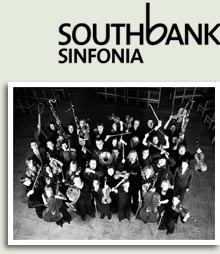Another sad piece of news – the passing of Philip Langridge. A wonderful, intelligent English tenor, with a distinctive voice, great musicality and a huge range of repertoire (BBC Radio 3 marked his passing with ‘Comfort ye / Every valley’ from Handel’s Messiah – beautifully sung of course, and repertoire I had never associated with him before. How typical).
Probably my earliest memory of him is as Tom Rakewell in a student production of Stravinsky’s The Rake’s Progress in Cambridge, probably in 1969 or 70. (The conductor was Antony Beaumont, director David Pountney, harpsichordist Mark Elder.) Besides Philip’s voice, I remember his cream-and-brown ‘co-respondent’ shoes (it was a modern dress production).
All I ever want is to be true to the piece, the words and the character; to the whole thing, its meaning and so on. When we are true to what we do that is what makes great art. If you try and nudge it in a certain way to try and make it better for you or make you more famous then that’s boring. The public are not stupid and they may not have studied many hours what you are performing – some have, but many haven’t – but you can always tell when somebody means something and when they don’t.
Communication is also an important thing and if we do not communicate what we are doing – or what the music is doing – what is there left?
[from the interview referred to below]
Modest, unassuming, never a diva, always ready with a smile and a friendly word – Philip was one of music’s gentlemen. I am proud to have worked with him at Glyndebourne, ENO and the Royal Opera. In the ground-breaking production of Janáček’s Osud at ENO he gave a harrowing performance as the composer Zivny, playing the tricky onstage piano part himself. With his wife Ann Murray he made a memorable double-act in Berlioz’s Beatrice and Benedict at ENO.
I treasure his recordings of Britten and Tippett and others, and memories of live performances including Schubert’s Winterreise at Blackheath Halls (with David Owen Norris). I also treasure the postcard he sent me from Aldeburgh (a watery watercolour scene with ‘Dawn’ from Britten’s Sea Interludes in a stave across the sky) in response to my congratulations on his CBE in 1994.
Energetic to the end, he could be seen leaping around the stage as Loge in Wagner’s Ring, or in more sedate (but vocally demanding) roles in Berg’s Lulu or Birtwistle’s The Minotaur. Ever ready to learn new or unfamiliar music, at the age of 70 it seemed he would go on for ever.
Farewell, Philip. And thank you for the music.
Deepest condolences to his wife Ann Murray, and his children including Anita and Stephen.
Obituary by Barry Millington here:
http://www.guardian.co.uk/music/2010/mar/07/philip-langridge-obituary
and a nice interview with Philip:
http://www.musicweb-international.com/SandH/2009/jan-jun09/langridge_interview.htm


 The
The 
Recent Comments